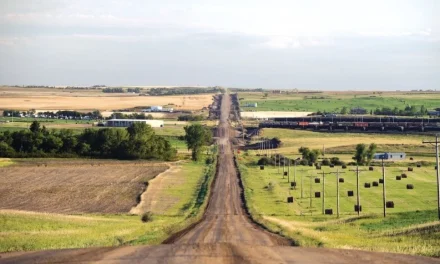Education and telemedicine are increasingly reliant on high-speed Internet and technological innovations. Youth and residents of the Havasupai Reservation near the Grand Canyon can testify to the challenges of learning and receiving adequate medical treatment with poor to no broadband access.
“[Our schools] only go up to eighth grade and the only option for high school is to move out of the canyon to earn their diploma [due to lack of the Internet],” Ophelia Watahomigie-Corliss, who represents the Havasupai Tribe, told Fox News.
The Havasupai Tribe began working with nonprofit company MuralNet in 2017 to get reservation schools better access to broadband. But connecting the approximately 450 residents of the village of Supai to Internet access has been insufficient, with Tribal employees at the community building not able to perform more complex tasks than accessing email and occasionally successfully searching the Internet.
The Havasupai Tribe recently sought authority from the Federal Communications Commission (FCC) to use the Educational Broadband Service (EBS) or spectrum — although the FCC hadn’t issued any new permanent licenses for EBS in more than 20 years. That appears to be changing, as the FCC has ruled that some spectrum will be dedicated specifically to the Havasupai Tribe, reported Fox News.
“We’re really putting our chips on EBS,” Mariel Triggs, chief executive of MuralNet, told the Associated Press. “It works in extreme cases. It’s cheap; it’s reliable.”
It’s expected the FCC will issue its more general ruling about spectrum allocation for Tribal areas across the United States next month. A new, national study reveals that the licensing of unassigned EBS spectrum to schools and nonprofits will reduce the digital divide by nearly 20 percent.
Former findings by the American Indian Policy Institute — that a third of all Native Americans lack broadband access — were largely challenged. A subsequent study by the U.S. Government Accountability Office determined that access in Tribal areas fares significantly worse.
Even after the FCC’s decision, technical planning for broadband deployment in rural areas takes time to navigate oftentimes mountainous terrain or long stretches of farmland. But progress is progress. Now Tribes across the country in Oklahoma, Wisconsin, Washington, Idaho, Arizona and beyond are also pressing the FCC for a priority filing window, the AP reported.








